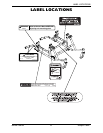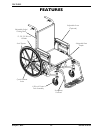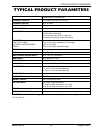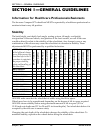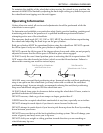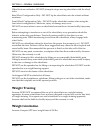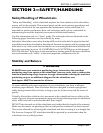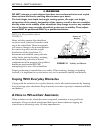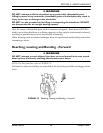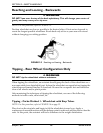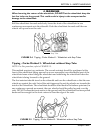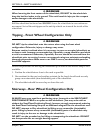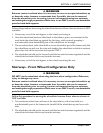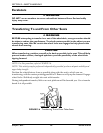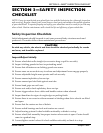
SECTION 2—SAFETY/HANDLING
Compass™SPT™ 18 Part No 1122134
ƽ WARNING
DO NOT attempt to reach objects if you have to move forward in the seat or pick
them up from the floor by reaching down between your knees.
The back height, seat depth, back angle, seating system, tilt angle, seat height,
size/position of the wheels, size/position of the casters, as well as the user condition
directly relate to the stability of the wheelchair. Any change to one or any combina-
tion of the eleven may cause the wheelchair to decrease in stability. These adjust-
ments MUST be performed ONLY by a qualified technician.
NOTE: For this procedure, refer to
FIGURE 2.1.
Many activities require the wheelchair
owner to reach, bend and transfer in and
out of the wheelchair. These movements
will cause a change to the normal balance,
the center of gravity and the weight
distribution of the wheelchair. To
determine and establish your particular
safety limits, practice bending, reaching
and transferring activities in several
combinations in the presence of a qualified
healthcare professional BEFORE
attempting active use of the wheelchair.
FIGURE 2.1 Stability and Balance
Proper positioning is essential for your safety. When reaching, leaning, or bending
forward, it is important to use the casters as a tool to maintain stability and balance.
Coping With Everyday Obstacles
Coping with the irritation of everyday obstacles can be alleviated somewhat by learning
how to manage your wheelchair. Keep in mind your center of gravity to maintain stability
and balance.
A Note to Wheelchair Assistants
When assistance to the wheelchair user is required, remember to use good body
mechanics. Keep your back straight and bend your knees whenever tipping the
wheelchair or traversing curbs, or other impediments.
Center of
Gravity
UNOCCUPIED
OCCUPIED
NOTE: Rear wheel configuration shown.




